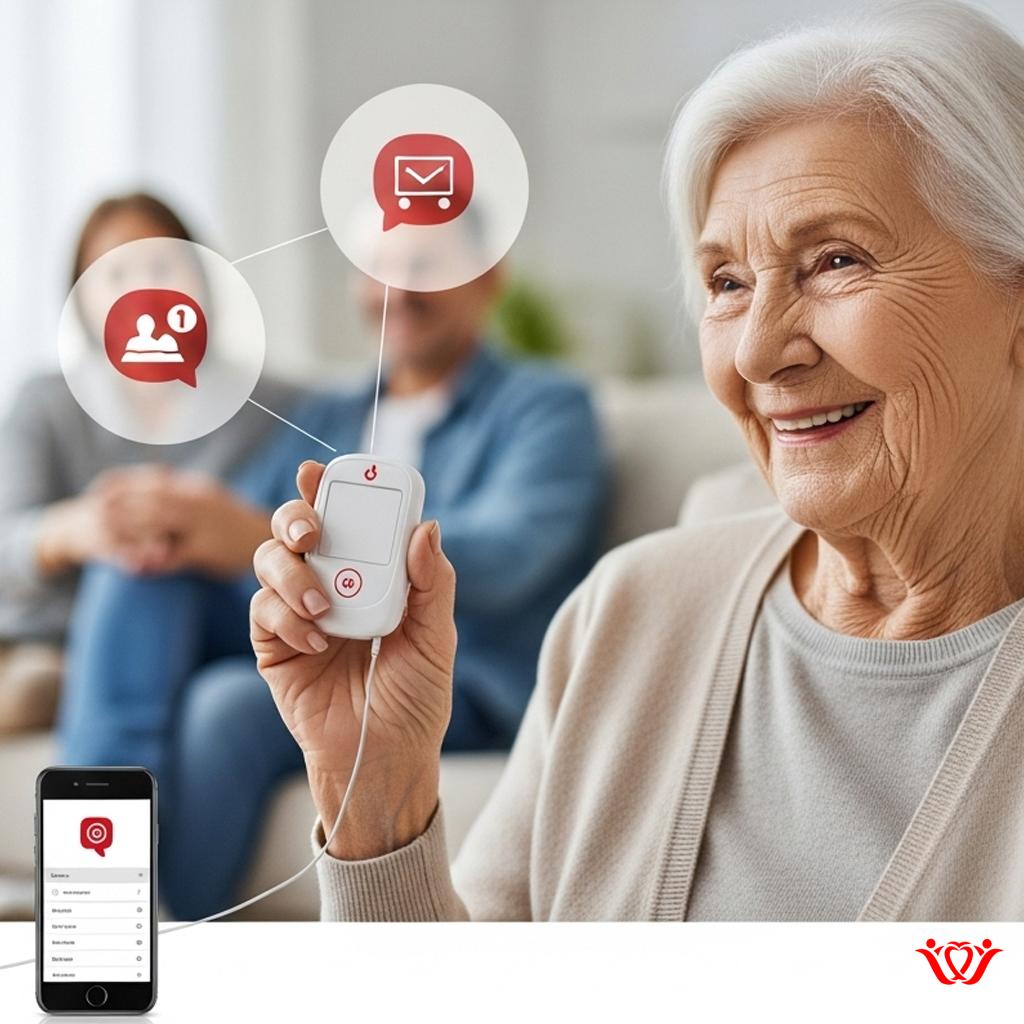Emergency Alert Systems: Your Ultimate Guide for NJ Seniors

Ensuring Safety and Peace of Mind for New Jersey Families
As we age, maintaining independence and safety within our homes becomes a top priority. For New Jersey seniors, their adult children, and dedicated caregivers, understanding the tools available to support this goal is paramount. Emergency Alert Systems (EAS), sometimes known as Medical Alert Systems or Personal Emergency Response Systems (PERS), offer a lifeline, providing immediate access to help during unexpected situations.
This guide will explore the various types of emergency alert systems, their benefits, and what New Jersey families should consider when selecting the best option. Our aim is to empower you with knowledge, helping you make an informed decision that enhances the safety and well-being of your loved ones right here in the Garden State.
What Are Emergency Alert Systems (EAS)?
Emergency Alert Systems are technological solutions designed to provide rapid assistance in emergencies. They typically consist of a wearable device, such as a pendant or wristband, connected to a base unit or directly to a cellular network. When an emergency arises – whether it’s a fall, a medical issue, or an urgent situation – the user can press a button on their device to instantly connect with a monitoring center.
These systems bridge the gap between independent living and immediate support. For many New Jersey seniors, having an EAS means they can continue to live comfortably and confidently in their own homes, knowing that help is always just a button-press away. For family members and caregivers, it offers a profound sense of reassurance.
Why EAS Are Important for NJ Seniors and Their Families
The decision to invest in an Emergency Alert System extends beyond mere convenience; it’s a commitment to safety, dignity, and sustained independence. For New Jersey’s aging population, these systems offer distinct advantages.
Enhanced Safety and Peace of Mind
The primary benefit of an EAS is the immediate access to help. If a senior experiences a fall while alone, a medical event like a stroke, or even feels unwell, they can summon aid quickly. This swift response can be life-saving, especially in emergencies where every second counts. For family members living across the street or across New Jersey, knowing their loved one can reach assistance provides immense peace of mind.
Maintaining Independence at Home
Many New Jersey seniors express a strong desire to age in place, remaining in the comfort and familiarity of their homes. EAS systems directly support this aspiration. They provide a safety net that enables seniors to continue their routines, hobbies, and social connections without the constant worry of an unassisted emergency. This technology empowers them to live more independently, reducing the need for more restrictive living arrangements.
Faster Response in Emergencies
Imagine a scenario: a senior in Cherry Hill slips on a rug and can’t get up. Without an EAS, they might lie there for hours, or even days, before someone discovers them. With an EAS, a button press connects them to a trained operator who can dispatch local emergency services, such as the Cherry Hill Fire Department EMS, directly to their location. This rapid dispatch can drastically improve outcomes, particularly for time-sensitive medical conditions.
Addressing Specific NJ Senior Needs
New Jersey’s diverse landscape, from bustling urban centers to quiet suburban communities, means varied lifestyles for seniors. An active senior in Bergen County who enjoys walking trails, or a senior in Ocean County living alone in a more isolated area, can both benefit from the security an EAS provides. These systems are adaptable, offering solutions that cater to various levels of activity and specific vulnerabilities, ensuring that help is always accessible, regardless of where they are in New Jersey.
Types of Emergency Alert Systems
The market for Emergency Alert Systems has evolved significantly, offering a range of options tailored to different needs and lifestyles. Understanding these types is the first step in choosing the right system for your New Jersey family.
Traditional In-Home Systems
These systems are typically stationary and designed for use within a senior’s home. They consist of a base unit and a wearable button.
- Landline-Based Systems: These connect to a traditional landline phone line. They are reliable but limited to homes with active landline service. When the button is pressed, the base unit dials the monitoring center through the phone line.
- Cellular-Based Systems: Utilizing cellular technology, these systems do not require a landline, making them ideal for seniors in New Jersey who have cut the cord or live in areas without landline access. They operate like a mobile phone, connecting directly to a cellular network.
- Features: Many in-home systems offer two-way voice communication through the base unit, allowing the user to speak directly with the monitoring center operator. Some include automatic fall detection, which senses a fall and alerts the center without the user needing to press a button.
Mobile/GPS-Enabled Systems
For seniors who are active and frequently leave their homes, mobile systems offer protection on the go. These devices are typically smaller, wearable, and include GPS capabilities.
- On-the-Go Safety: Whether visiting a friend in Edison, shopping in Paramus, or enjoying a walk in a local New Jersey park, these systems ensure help is available anywhere there’s cellular service.
- Location Tracking: The built-in GPS allows monitoring centers and, in some cases, designated family members, to pinpoint the user’s location during an emergency. This is particularly beneficial if the senior cannot verbally communicate their whereabouts.
- Ideal Users: These systems are excellent for active seniors, those who drive, or individuals with a higher risk of falls or disorientation when outside the home.
Smart Home Integration
Modern EAS solutions are increasingly integrating with smart home technology, offering broader monitoring capabilities.
- Voice Assistants: Integration with devices like Amazon Echo or Google Home can allow seniors to call for help using voice commands, which is beneficial if a wearable device is not within reach.
- Smart Sensors: Motion sensors, door sensors, and even temperature sensors can be incorporated to monitor activity levels, detect unusual patterns (like no movement for an extended period), or identify potential hazards like extreme indoor temperatures.
- Remote Monitoring: Some systems allow adult children or caregivers to remotely check on their loved one’s activity or system status via a smartphone app.
Specialized Systems
Certain situations may call for more specialized EAS features.
- Dementia/Wandering Support: For individuals with cognitive impairments, systems can include geofencing capabilities, alerting caregivers if the senior leaves a predefined safe zone.
- Hearing/Vision Impaired Features: Some systems offer visual alerts (flashing lights) or vibrating alerts in addition to audible ones, catering to those with sensory impairments.
Key Features to Consider When Choosing an EAS in NJ
Selecting the right Emergency Alert System requires careful consideration of several factors. Focusing on these features will help New Jersey families make an informed decision that aligns with their specific needs and budget.
Monitoring Center Quality
The monitoring center is the heart of any EAS. Look for a center that operates 24/7, 365 days a year, with highly trained operators. Inquire about their average response time and whether they are U.S.-based. Companies like Medical Guardian and Bay Alarm Medical often highlight their UL-listed or CSAA Five Diamond certified monitoring centers, indicating high standards of service. A reliable center will quickly assess the situation and dispatch appropriate local New Jersey emergency services, whether it’s an ambulance to a home in Princeton or police to an address in Newark.
Connectivity Options
Consider how the system connects to the monitoring center. Does the senior have a landline, or would a cellular-based system be more appropriate? Cellular options provide greater flexibility and are becoming increasingly popular across New Jersey, as they don’t depend on traditional phone lines and can often be used on the go.
Range of Wearable Devices
For in-home systems, the range determines how far the wearable pendant or wristband can be from the base unit while still functioning. Ensure the range covers the entire home, including the yard or garden if the senior spends time outdoors. Mobile units offer virtually unlimited range wherever cellular service is available.
Battery Life
For wearable devices, especially mobile ones, battery life is vital. Look for devices that offer long battery life and provide low-battery alerts. Some pendants have batteries that last for years without charging, while mobile units may require daily or weekly charging. It’s important the senior or caregiver is comfortable managing the charging routine.
Fall Detection Accuracy
Automatic fall detection is a valuable feature, particularly for seniors at high risk of falls. However, no fall detection system is 100% accurate; false alarms can occur, and some falls may not be detected. Inquire about the technology used and the company’s protocol for unconfirmed fall alerts. This feature provides an extra layer of security, especially for seniors who may be incapacitated after a fall and unable to press their button.
Water Resistance
Many falls occur in bathrooms. A water-resistant or waterproof pendant is essential so the senior can wear it while showering or bathing, ensuring protection even in high-risk areas of the home.
Cost and Contract Terms
EAS systems typically involve an equipment fee (sometimes waived or reduced) and a monthly monitoring fee. Compare pricing across different providers. Inquire about contract lengths, cancellation policies, and any hidden fees. Some providers offer discounts for annual payments. It’s also worth checking if any parts of the cost are covered by Medicare Advantage plans, Long-Term Care Insurance, or specific New Jersey state programs like NJ FamilyCare or Area Agencies on Aging (AAA) services, though traditional Medicare (Part A and B) generally does not cover these systems.
How to Choose the Right EAS Provider in New Jersey
With numerous providers available, selecting the best one for a New Jersey senior can seem daunting. Here’s a structured approach to help guide your decision.
Assess the Senior’s Needs and Lifestyle
Start by evaluating the senior’s daily routine, mobility, health conditions, and specific safety concerns. Do they primarily stay at home, or are they active outside? Do they have a history of falls? Is memory a concern? A senior who is mostly homebound might do well with a traditional in-home system, while an active senior who still enjoys trips to the Jersey Shore or visits to family across the state would benefit more from a mobile, GPS-enabled device.
Research Reputable Providers
Look for providers with a strong track record and positive customer reviews. Companies like Life Alert, Medical Guardian, Bay Alarm Medical, and Philips Lifeline are widely recognized. Check their ratings with organizations like the Better Business Bureau (BBB). Consider asking for recommendations from local New Jersey senior centers, healthcare professionals, or fellow caregivers in your community.
Compare Features and Pricing
Once you have a shortlist of providers, meticulously compare the features discussed earlier (monitoring, connectivity, fall detection, battery life, water resistance) alongside their pricing structures. Create a spreadsheet to organize the information, noting initial costs, monthly fees, and any long-term commitments. Be wary of providers with exceptionally low prices that may hide additional fees or offer substandard service.
Read Customer Reviews and Testimonials
Online reviews on platforms like Google, Yelp, and product review sites can offer valuable insights into other customers’ experiences with a provider’s equipment, monitoring service, and customer support. Pay attention to comments regarding response times, ease of use, and billing transparency. Look for reviews from customers in New Jersey to see if there are any localized service insights.
Consider Trials and Guarantees
Some providers offer trial periods or money-back guarantees, allowing you to test the system’s effectiveness and the monitoring service before committing long-term. This can be a significant advantage, ensuring the system meets expectations and functions reliably in your specific New Jersey home environment.
Installation and Ongoing Support
Most Emergency Alert Systems are designed for easy self-installation. Traditional in-home systems typically involve plugging in a base unit and ensuring the wearable device is paired. Mobile units often arrive pre-activated and ready to use. However, confirm with the provider if professional installation is offered or required, especially for more complex smart home integrations.
Ongoing support is just as important as the initial setup. Ensure the provider offers readily available customer service for technical issues, billing inquiries, or emergency contact updates. A reliable support team can be contacted to update the list of emergency contacts, for example, if a family member moves or a new caregiver joins the team in a New Jersey home.
Funding and Assistance for EAS in New Jersey
The cost of Emergency Alert Systems can be a consideration for many families. While traditional Medicare (Parts A and B) generally does not cover these systems, there are other avenues for financial assistance or coverage in New Jersey:
- Medicare Advantage Plans: Some Medicare Advantage (Part C) plans may offer benefits that include or contribute to the cost of PERS devices as part of their supplemental health benefits. It’s essential to check the specific plan details or contact the insurance provider directly.
- Long-Term Care Insurance: If the senior has a long-term care insurance policy, it may cover some or all of the costs associated with an EAS, particularly if it’s deemed necessary for maintaining independence and delaying nursing home admission.
- Medicaid (NJ FamilyCare): New Jersey’s Medicaid program, NJ FamilyCare, may offer coverage for home-based care services and equipment, including PERS, under certain waivers or programs for eligible individuals. Eligibility and coverage details vary, so contact the New Jersey Department of Human Services or your local Area Agency on Aging.
- Veterans Affairs (VA) Benefits: Veterans may be eligible for financial assistance or a free EAS through VA benefits, especially if it’s prescribed by a VA physician.
- Area Agencies on Aging (AAAs): New Jersey has Area Agencies on Aging in each county that can provide information on local programs, grants, or financial assistance available for seniors, including those that might help with the cost of an EAS. You can find your local AAA through the New Jersey Department of Human Services, Division of Aging Services (www.nj.gov/humanservices/das/).
- Private Funding / Family Contribution: Many families opt to cover the cost privately, viewing it as a valuable investment in their loved one’s safety and continued independence.
Always contact the respective organizations or your insurance provider to understand specific eligibility requirements and coverage details.
The WeCare Home Caregivers Difference
At WeCare Home Caregivers, we understand that an Emergency Alert System is one piece of a larger puzzle when it comes to comprehensive senior care. While EAS provides critical immediate response, our dedicated caregivers offer daily, compassionate support that can often prevent emergencies from occurring in the first place.
Our services, ranging from personal care and medication reminders to meal preparation and transportation, complement the safety provided by an EAS. A caregiver from WeCare Home Caregivers can ensure the EAS device is worn and charged, assist with its use, and be a familiar presence that reduces risks. We work hand-in-hand with New Jersey families, offering peace of mind through both technology and human connection.
Choosing an Emergency Alert System is a proactive step towards a safer, more independent future for New Jersey seniors. By understanding the options and considering key features, you can select a system that provides unwavering support and ensures help is always within reach.



